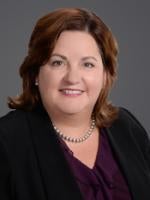The U.S. Department of Labor (DOL) indicated in court documents that it intends to begin new rulemaking to replace a previous rule that permitted 401(k) plan fiduciaries to consider environmental, social, and governance (ESG) factors when choosing investment options in the plan.
Quick Hits
- The DOL will no longer apply a previous rule that allowed retirement plan fiduciaries to take ESG factors into account when selecting investment options.
- Twenty-six states challenged the rule in the Fifth Circuit Court of Appeals.
- Plan fiduciaries may continue to rely on financial factors to make decisions about which investments to include in the plan.
Under the Employee Retirement Income Security Act (ERISA), retirement plan fiduciaries are required to select and monitor plan investments in accordance with ERISA’s fiduciary duties. Among those duties are the requirements to prudently select and monitor plan investments, to diversify plan investments in most cases, and to act solely in the interests of the plan participants and beneficiaries when doing so. Plan fiduciaries are required to follow the plan’s written investment policy outlining factors to be considered in this process.
In December 2022, the DOL published a final rule that clarified that fiduciaries may consider climate change and other ESG factors when they select retirement plan investments and exercise shareholder rights, such as proxy voting. For example, ESG factors may include a company’s carbon emissions, water usage, waste management, diversity and inclusion policies, hiring and labor practices, workplace safety, philanthropy, board structure, and ethical standards. This issue arises not just when investment fiduciaries select individual stock holdings for pension plans, but also when they select 401(k) investment option menus, typically comprised of many mutual funds representing a balanced variety of asset classes, investment philosophies, and risk levels. Some mutual fund managers expressly take ESG factors into account when selecting fund holdings.
Background on the Case
Twenty-six states and three private-sector plaintiffs sued the DOL over its 2022 final rule. They argued that ERISA precludes fiduciaries from considering nonmonetary factors when making plan investment decisions.
On September 21, 2023, the U.S. District Court for the Northern District of Texas concluded the DOL’s rule did not violate ERISA and was a permissible exercise of agency rulemaking authority under the federal Administrative Procedure Act. That court relied on the DOL’s interpretation of ERISA’s fiduciary standards and concluded that taking ESG factors into consideration can be part of a prudent investment selection process designed to maximize returns at various risk levels.
However, on July 18, 2024, the Fifth Circuit vacated the District Court’s decision and remanded the case for consideration of the impact of the Supreme Court of the United States’ 2024 ruling in Loper Bright Enterprises v. Raimondo. In Loper Bright, the Supreme Court overruled Chevron deference, a legal doctrine that called for courts to defer to a federal agency’s reasonable interpretation when a law is ambiguous.
On February 14, 2025, the U.S. District Court for the Northern District of Texas again upheld the Biden-era rule, even without the Chevron deference. The states appealed the case, and on April 28, 2025, the Fifth Circuit granted a motion to put on hold the case for one month. Then the DOL filed a letter stating its intention to replace the ESG rule.
Next Steps
The DOL’s rulemaking process typically takes several months and involves issuance of a new proposed rule, and a notice and comment period prior to finalizing the new rule.
In the meantime, retirement plan fiduciaries may continue to rely on prudent investment selection factors outlined in the plan’s written investment policy statement when selecting and monitoring plan investments. While it is anticipated that a new rule will not permit plan fiduciaries to consider ESG factors, it remains to be seen whether a prudent investment selection process will be limited to a review of financial factors, such as revenue, earnings, profitability, and reasonable fees, or whether other nonquantitative factors will continue to be permissible criteria for fiduciaries to consider.
The DOL’s statement in this case came at the same time as the agency rescinded previous guidance that discouraged fiduciaries from including cryptocurrencies in 401(k) plans. Although the DOL had previously cautioned plan fiduciaries that it did not view cryptocurrencies as prudent investment options for employer-sponsored retirement plans due to their lack of transparency, increased volatility, and high-risk profile, the agency now says it neither endorses nor disapproves of the inclusion of cryptocurrencies in 401(k) investment options.
As with all investment decisions, plan fiduciaries considering the inclusion of cryptocurrencies may want to consult their written investment policy statement to determine what criteria will be used for selecting and monitoring those investments.




 />i
/>i
